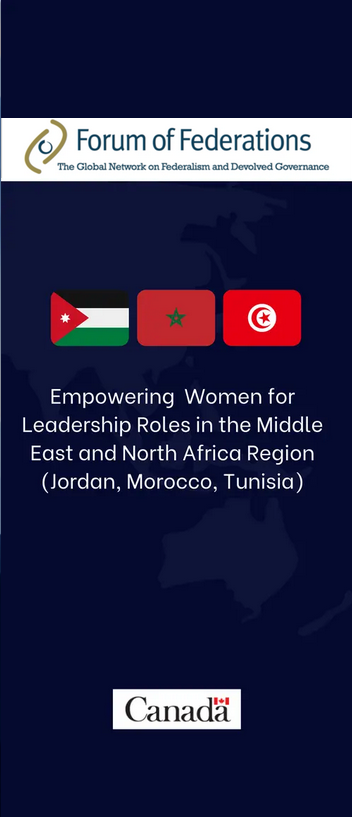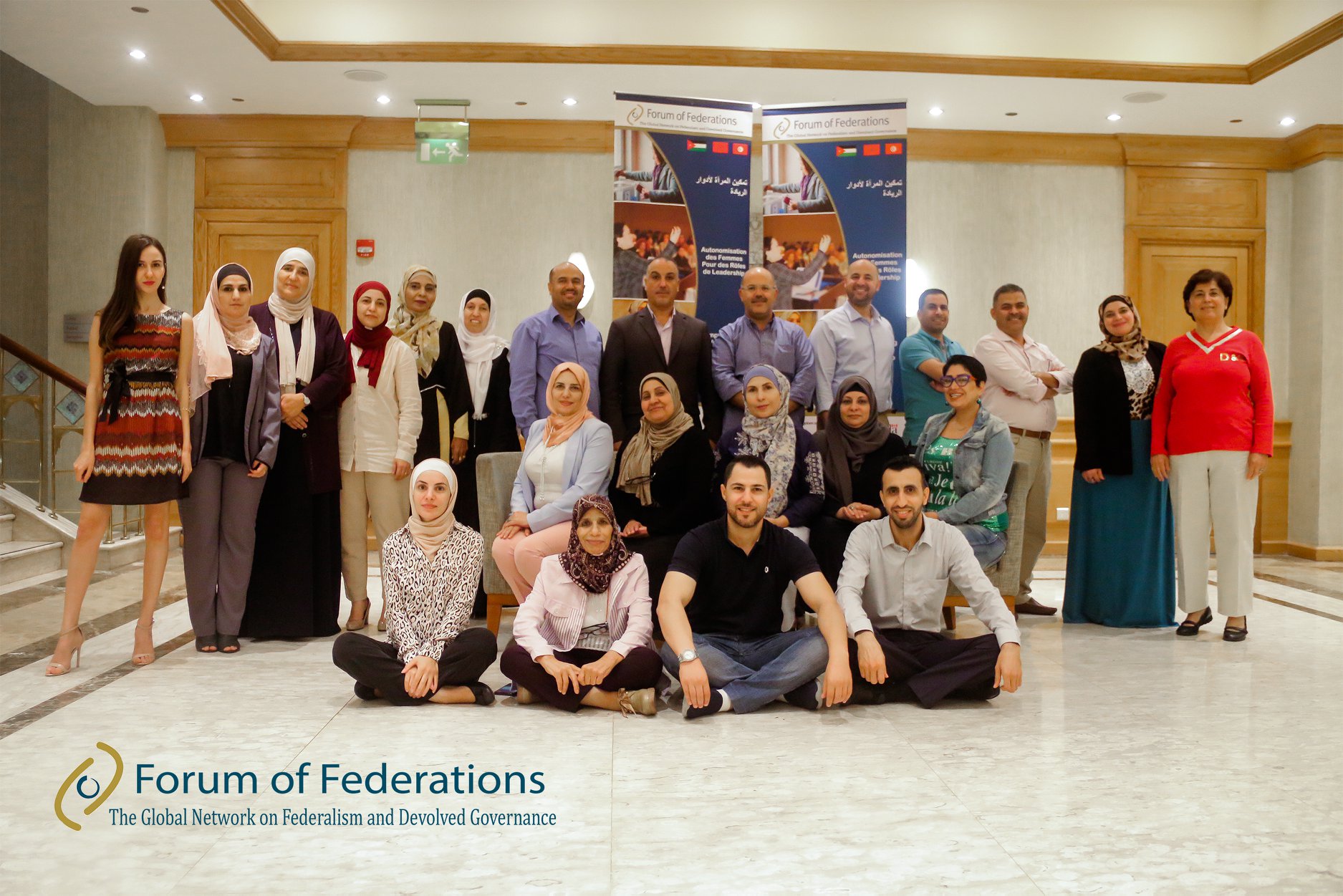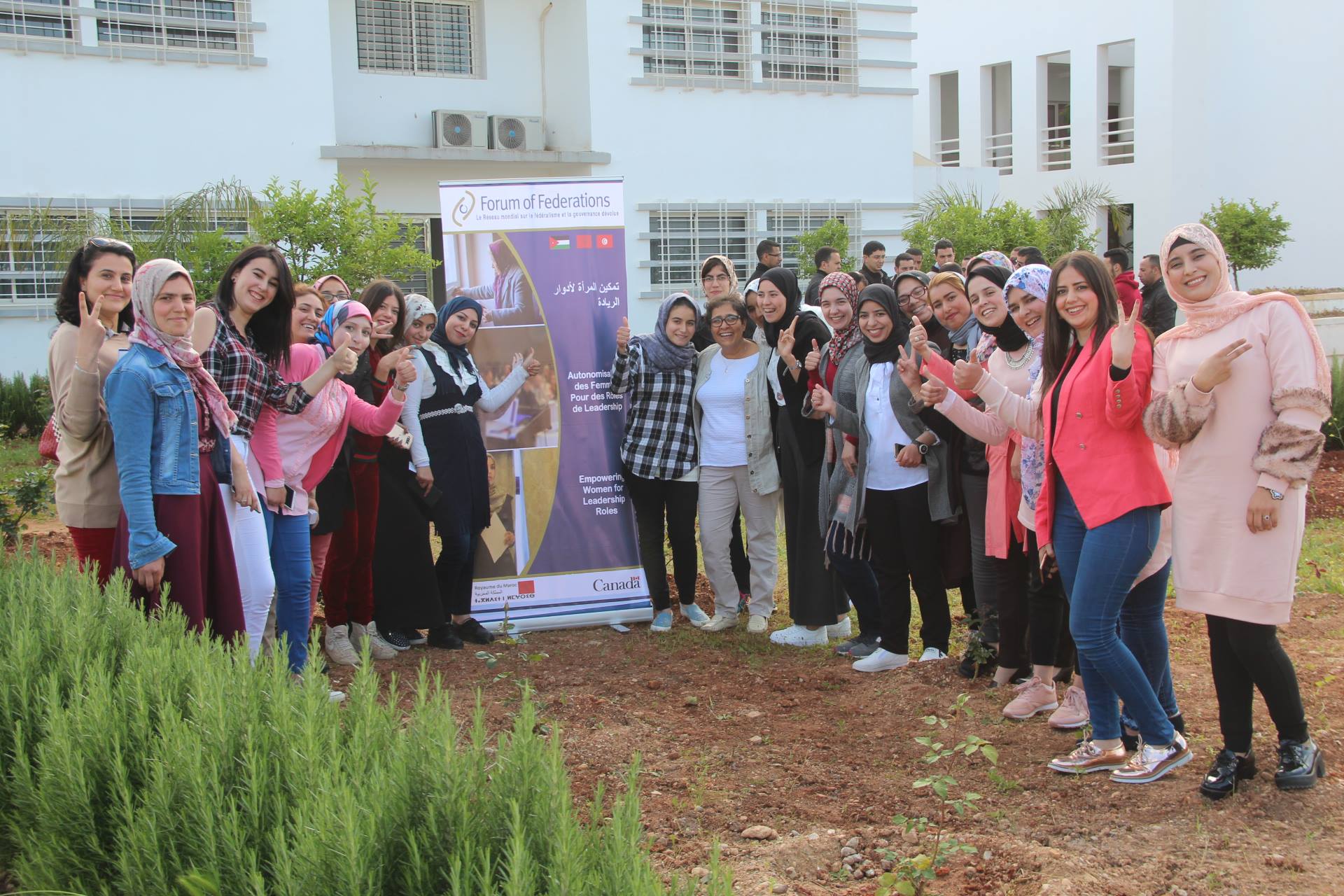The MENA program for women’s leadership, funded by Global Affairs Canada, was initiated in 2016 as a seven-year project. Its goal is to empower women and advance inclusiveness in governance in Jordan, Morocco, and Tunisia. To achieve this, the project aims to increase women’s capacity to engage in leadership roles and governance processes as well as enhance women, men, and gender-equality allies’ ability to influence policies around inclusiveness.
What the Forum is Doing: Principle-Based Strategic Approach

- Provision of leadership skills training to enhance the leadership capacities of women and increase their confidence to assume leadership roles
- Facilitation of networking between the targeted female stakeholders and established women leaders to enable knowledge transfer and experience sharing on transformational leadership, governance, and policies.
- Development and dissemination of materials to foster increased awareness on women’s leadership and empowerment amongst the citizens of the target countries.
- Enhancement of the capacity of local organizations and actors to train and impart knowledge in women’s leadership and empowerment to fellow citizens.
What the Program Aims to Achieve: Results

- Strengthen leadership skills of established women leaders, including legislators, public servants, local government, civil society, business, unions, and academia, and further their understanding of democratic processes and governance systems.
- Train future leaders by developing skills, starting with middle-level administrators and union members. Local populations will also be targeted to encourage more women to support political parties and become politically active.
- Increase the number of women applicants for leadership positions within their administrations.
- Increase public awareness through knowledge dissemination activities and an attitudinal shift amongst the population, both male and female.
- Strengthen capacities of institutions, including Governmental, non-governmental, CSOs, media, trade unions, and academic Institutions, to positively influence policies and develop programs that will help achieve inclusive governance.
Historical Context

Although there have been challenges in achieving gender equality, numerous strides have been made over the years. Despite this progress, it is crucial to maintain an upward trajectory and eradicate social, cultural, and religious strictures that aim to decrease or sustain the present number of women representatives and women who are politically active, empowered, and equipped to take up leadership roles. In its mandate to advance gender equality and inclusive governance, the Forum of Federation aims to help achieve these goals, hence the Empowering Women for Leadership Roles in the Middle East and North Africa Region (Jordan, Morocco, and Tunisia) project.
Almost all the Director Generals are men, but we have gradually started to introduce them to the gender equality spirit. They say that they have binding laws. I tell them that the laws can be revised, it is enough to have the will. Thus, following our proposal, the Minister does not see any problem with the fact that the joint circulars with the Ministry of Agriculture could include clauses that would grant bonuses to women farmers for their economic empowerment.
[…] The training of the Forum of Federations came to be a quantum leap in my personal and professional life: a leap that even my colleagues would notice. After the training, I became a more self-confident woman, able to share my thoughts and efficiently participate in the life of the council. I became more active and continued to learn, work, and travel with more motivation. This journey not only made my colleagues take me seriously, it also made them always take into consideration my expertise on certain causes, such as the rights of people with disabilities.
The Forum also helped me understand that influence cannot be individual and that an empty seat cannot change the situation of women. So, I was able to apply for the position of President of the “Maison de Maternité” in Tazarine, lead the initiative to fight illiteracy and raise awareness among women, and I am going to re-implement the women’s alliance and move my association forward.
Stay up-to-date on the MENA Program:






